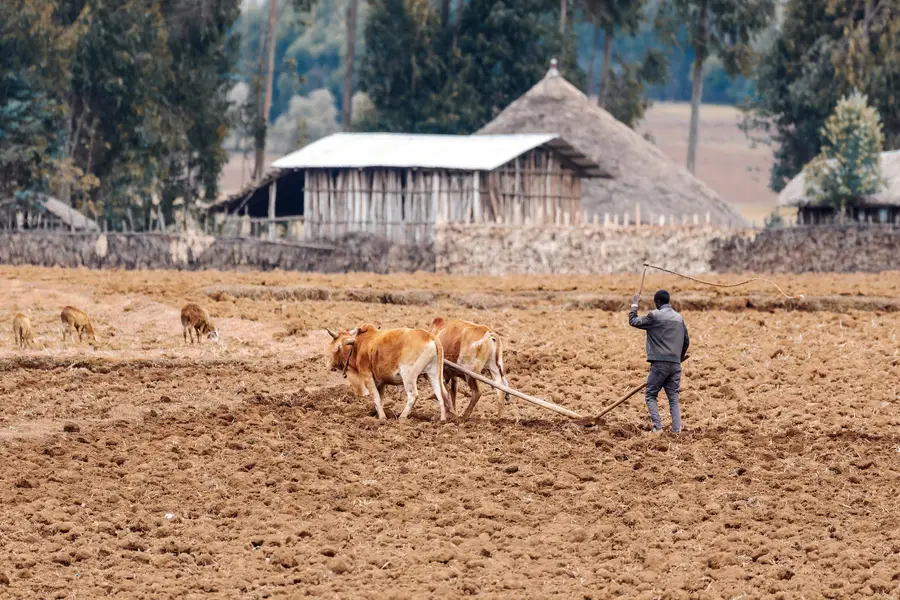
This blog is part of our series focused on Locally Led MERLA (Monitoring, Evaluation, Research, Learning, and Adapting). Read the other blogs in the series by clicking on the links at the end of the page.
RTI is committed to continuing and enhancing our work to foster locally led solutions to development challenges. That’s because we know from experience that the most equitable, effective, and sustainable development solutions are created with and championed by those who have the most in-depth understanding of how to improve lives and livelihoods in their own communities.
As part of our ongoing efforts to shift power to local actors and ensure that we are co-creating smart, shared solutions for long-term impact, we facilitate locally led MERLA, in which local partners are at the helm in creating solutions for their communities.
In this fourth blog in our series, we sat down with RTI’s Birhanu Teka, the Research and Learning Manager on the USAID Ethiopia Poverty Reduced Sustainably in an Environment of Resilient and Vibrant Economy (PReSERVE) project, to learn more about how this project is prioritizing local voices in MERLA.
What is PReSERVE?
PReSERVE is a project led by Food for the Hungry, in partnership with RTI, working on building the resilience of vulnerable households in Ethiopia through an integrated approach to nutrition, food security, WASH, markets and value chains, and capacity strengthening. This government of Ethiopia initiative and USAID-supported project aims to reach more than a quarter of a million people in the next five years.
INTERVIEW WITH BIRHANU TEKA
How does PReSERVE integrate a locally led MERLA approach in its work?
In collaboration with local organizations, including Bahir Dar University, consultants, and government and non-government experts, we conducted studies with the local research community to collect information and held learning sessions to feed into the project’s implementation planning.
To ground truth and contextualize the studies’ findings in local knowledge and expertise, the learning sessions brought together local partners, NGOs, civil society organizations, and community members to validate and reflect on major findings with project experts, senior management, and technical experts. Local communities and partners are also involved in the process of refining interventions and modifying the project’s theory of change, as well as contributing to the development of new interventions based on the findings and community’s needs in order to achieve lasting results.
The learning sessions added value as they were designed with participatory activities to collaboratively understand the situation in the communities and develop interventions that address the context-specific challenges of PReSERVE target groups. Through collaborating, pausing, and reflecting alongside local partners and stakeholders, we are constantly looking to improve our interventions and bring meaningful improvement to better target participants, increase community participation, prioritize activities, and find more opportunities for collaboration.
What are the results of using a locally led MERLA approach?
The approach has allowed us to strengthen the capacity of Bahir Dar University and local researchers through trainings and mentorship as we regularly worked together on this research while allowing the project to better address the context and challenges as we work toward our collective goal.
Additionally, the locally led MERLA approach has created a vital platform for collaboration, whether that is between NGOs, civil society organizations, or cooperatives, who have all been very happy to come forward and support the project. Through this approach we’ve also been able to contribute to sustainability in the interventions by supporting and facilitating the design process with input from local participants. We’re constantly receiving input on ways to refine our activities through facilitated learning activities with the community which help us to adapt them to local contexts.
As a learning institute, RTI has also gained critical insights and perspectives from PReSERVE’s local partners, who are most familiar with the cultures and norms as well as trusted by the community. Collaborating on study design and learning events, as well as soliciting review and feedback on reports, has made these efforts all the more useful—even beyond the life of the PReSERVE project. These partners have worked hand-in-hand with us to continue implementation even through complex situations, which otherwise might have been impossible.
How can practitioners support and advocate for locally led MERLA?
We can learn a lot using locally led MERLA and get a lot of contextualized evidence and research findings that better refine and feed into theories of change and interventions. To achieve that, projects also need to further engage in adaptive management using the evidence generated from local research, monitoring and evaluation, and real-time learning, with an emphasis on locally led adaptations to ensure that all the learnings and refinements are used for better project implementation.
Additionally, having enough capacity at the local level is a big concern; projects need to be prepared to provide capacity strengthening for local organizations to both contribute meaningfully to MERLA and build a pathway for sustainability. With all the benefits of a locally led MERLA approach, I have seen firsthand that it is worth the investment to have a greater impact on sustainability of project results.
More from this series:
- Bringing local voices and knowledge to the forefront: A framework for locally led MERLA approaches
- Locally led MERLA in WASH: An Expert Interview with Joseph Mumba
- Locally Led MERLA in Governance: An Expert Interview with Fatoumata Sane
- When We Talk About Locally Led Development, We Need to Talk About Data Ownership
Learn more about RTI's MERLA work.
